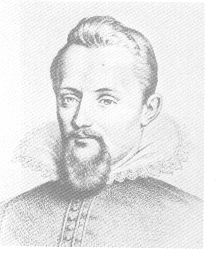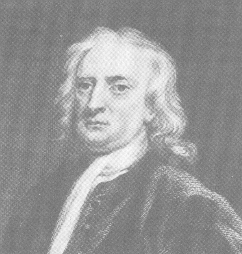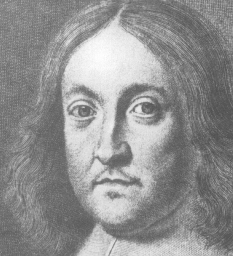Kepler

Johannes Kepler (1571-1630)
Kepler was a German astronomer and physicist who discovered the three laws of
planetary motion. At an early age of three, Kepler had smallpox which damaged
his eyesight and the use of his hands. As a student, Kepler was interested in
theology and also became a follower of Copernicus. After becoming a mathematics
teacher in Austria, Kepler joined Tycho Brahe in Prague to study the orbit of
Mars.
The 20-year archive of planetary data collected by Brahe was instrumental in
helping Kepler formulate the first and second laws of planetary motion. On his
spare time, Kepler was interested in astrology, casting horoscopes,
and the music of the spheres (from the planets).
Newton

Isaac Newton (1642-1727)
Newton was an English physicisist and mathematician who discovered the binomial
theorem, invented calculus, and produced theories of mechanics, optics, and the
law of universal gravitation. Many of his ideas for which he is famous were
developed in isolation in the year 1665 during the Great Plague. From his three
laws laws of motion, Newton explained the collision of particles and Kepler's
three laws of planetary motion. Newton's Epitaph reads:
"...who by vigor of mind almost divine, the motions and figures of the planets,
the paths of the comets, and the tides of the seas first demonstrated."
On his spare time, Newton was interested in theology and alchemy. He also reformed
the currency and in return was knighted Sir Isaac Newton.
Fermat

Pierre de Fermat (1601-1665)
The basic claim of Fermat's Last Theorem is that the equation x^n + y^n = z^n has
no solutions when x, y, z are nonzero integers and n > 2. While thinking about
this problem, Fermat added the following words on the margin of a book:
"I have discovered a truly marvellous proof of this, which however the margin is not
large enough to contain."
Fermat also stated that Light follows a path that minimizes total travel time.
Frederick J. Wicklin <fjw@geom.umn.edu>
Last modified: Mon Nov 7 19:20:49 1994


